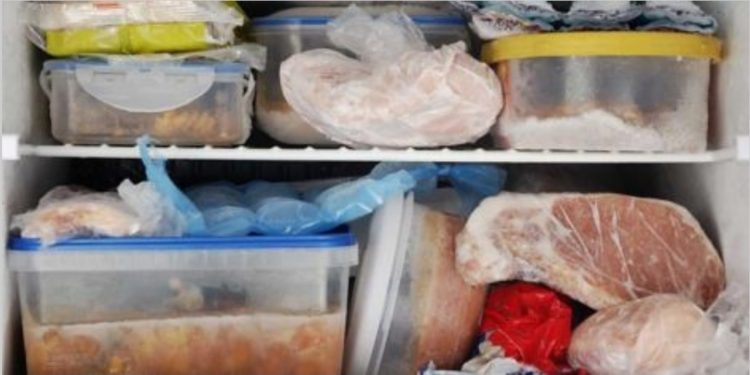One of the common ways of extending the shelf life of food and eventually save money is to store them in a freezer.
However, there are some common foods that when frozen, can become toxic and should not be consumed.
eyemediauganda.com has put together a list of 5 such common foods, highlighting the best way to store and consume them so that their nutritional value can be enjoyed.
If eaten fresh, these foods are safe to consume and enjoyed in different ways.
1. Avocados
Avocados are a delicious and nutritious fruit that is best consumed when fresh or when stored in the fridge for a few days. However, freezing them is not recommended.
Freezing avocados can slow the ripening process, but it can also turn the avocado brown and mushy. If you must refrigerate avocados, do so only when they are fully ripe.
Once the avocados are ripe, they can be stored in the fridge for up to 3 days to ripen faster. After they are ripe, they should be placed in a paper bag with an apple or a banana.
To prevent avocados from browning, store them in an airtight container or wrap them in plastic wrap.
It is important to note that avocados are a perishable food and should be eaten within a few days of being ripe.

2. Onions
Onions can be stored in the fridge for up to a week. However, freezing them can cause them to lose their flavour.
When frozen, onions lose their crunchy texture. This is because the freezing process breaks down the onion’s cell walls, causing the cells to release their moisture resulting in a softer, mushier onion.
Freezing onions also causes them to lose their flavour because the process damages the flavour compounds in the onion.
Additionally, freezing onions cause them to lose their nutritional value as some vitamins and minerals are broken.
However, If you do choose to freeze onions, it is best to do so only for short periods of time.
The best way to refrigerate onions is to peel and chop, place them in an airtight container or bag and freeze them for at most one and a half months.

3. Potatoes
It is advisable to store potatoes in the fridge for a period of up to one week
Because potatoes contain a lot of water, they should not be frozen raw. This water expands when frozen, causing the potatoes to become mushy and grainy.
Additionally, the freezing process can damage the cell walls of potatoes, causing enzymes to be released that cause the potatoes to discolour and lose flavour.
Potatoes should be stored in a cool, dark place. However, if you have to freeze potatoes, it is best to do so after they have been cooked or partially cooked to retain the flavour.

4. Tomatoes
Tomatoes should be eaten fresh or stored at room temperature. because they are perishable.
When frozen, the water within the cells expands, causing the cells to burst. When the tomatoes are thawed, they become mushy and watery.
At the same time, the freezing process damages the enzymes in tomatoes, which then causes them to lose their flavour.
However, in a case where there is an abundance of tomatoes and they are all ripe and you chose to freeze them, it is best to do so only for short periods of time.

5. Bread
Freezing bread can negatively affect its texture and flavour.
The water molecules in bread enlarge when it is frozen and then contract when it is thawed causing the bread to become dry and crumbly.
Further, the freezing process can damage the gluten in the bread, which can also affect the texture.
It is recommended to store bread in the fridge for up to three days.
















